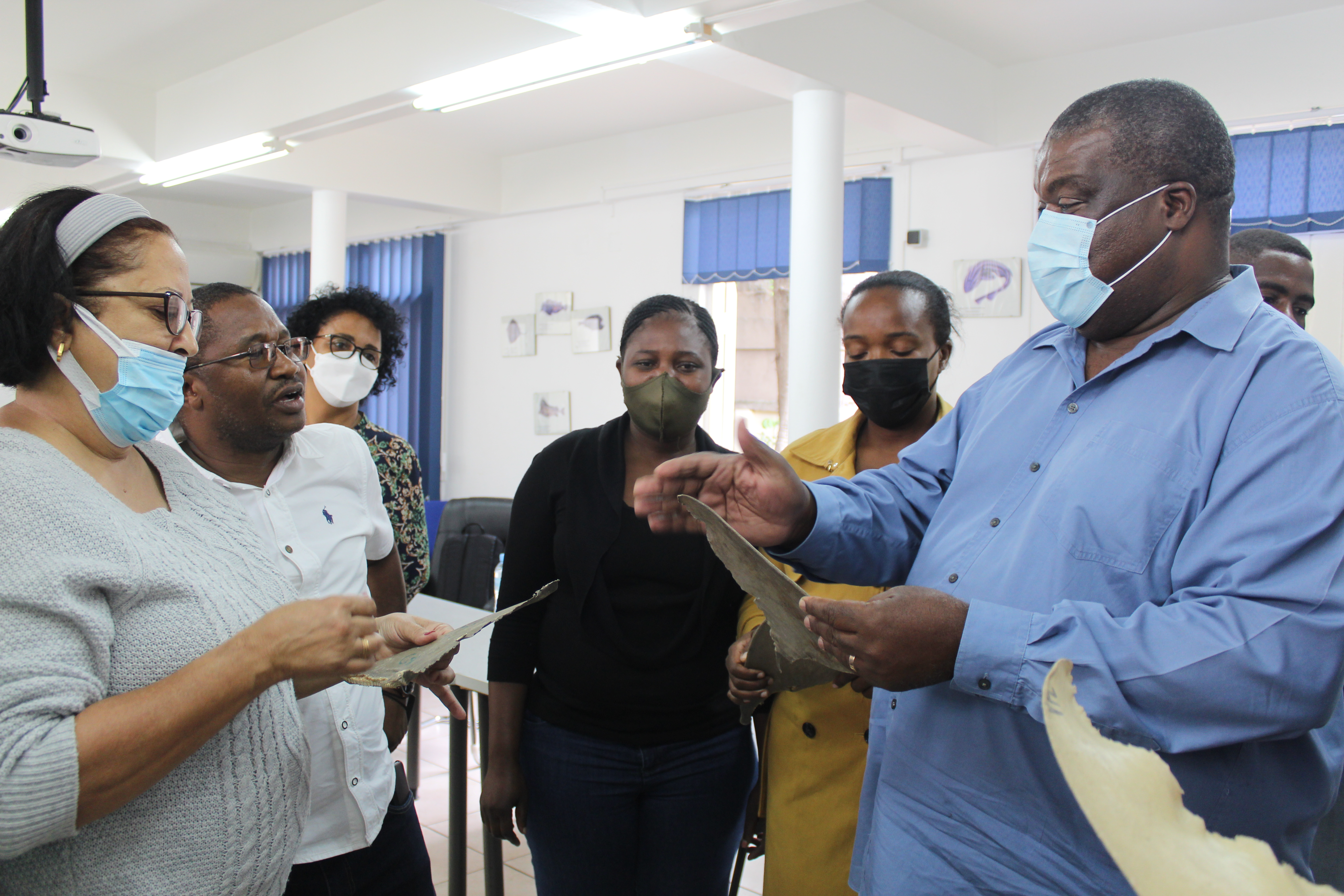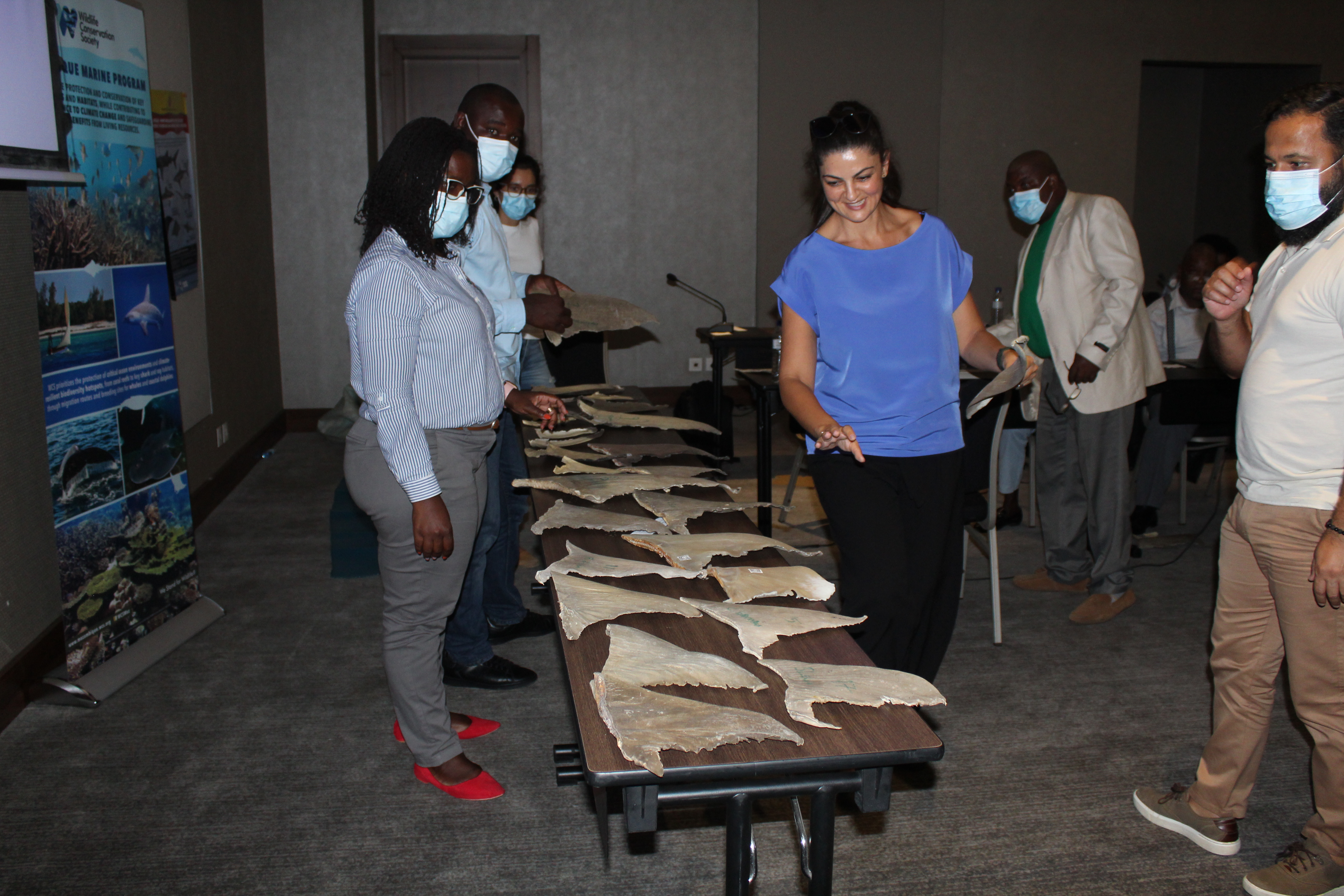The National Institute for Fisheries Research (IIP), with the support of the Wildlife Conservation Society (WCS), held a training session for Mozambican technicians for the identification of sharks and rays, between November 23th and 25th, in Maputo City. The training was attended by 33 participants from the fisheries sector (Zambézia, Nampula, and Maputo), academia, Customs, and civil society.
This training was part of the activities agreed upon between WCS and MIMAIP under the Memorandum of Understanding signed this year by the two institutions on World Oceans Day. The training aimed primarily at improving the ability to identify species included in the Convention on International Trade in Endangered Species of Wild Fauna and Flora (CITES), in this case sharks and rays, as well as increasing the technical capacity for shark fin identification.

Shark and ray fins have been widely traded off the coast of Mozambique for export, mainly to Asia. There have been limitations in the identification of species whose export is or is not allowed by the various sectors that constantly deal with fishery resources - IIP, INIP, University, Customs, and the administrative authority of CITES (National Administration of Conservation Areas - ANAC). In this context, it is pertinent to train technicians and others involved in the identification of fins to ensure a more effective monitoring and control, ensuring a sustainable exploitation that does not affect the viability of these important species.
The training included an introductory presentation on CITES, a presentation on the Fishing Legislation for Sharks and Rays and on the Licensing for species integrated in the Convention. Group activities were then developed for the fin identification component, and for this exercise real fins and 3D printed fins were used for learning identification to species level. The training was provided by an international expert accredited in the identification of this group of species.

Sharks and rays are fundamental in the role of regulating the marine ecosystem, as they ensure its balance, contributing to the maintenance of several fisheries. Unfortunately, like several other species they have been increasingly targeted for extraction due to the growing demand for their meat, skin, jaws, liver, and fins.
Specifically for sharks and rays, WCS intends to support the Government so that by 2025, actions will have been implemented in Mozambique to support the ongoing viability of threatened species of sharks and rays, the sustainable management of resilient species, and important areas for this group are identified and protected.